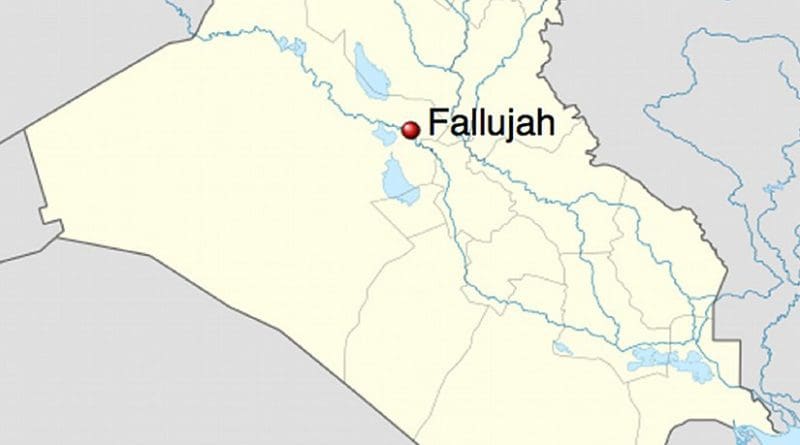Wrong Move By US On Fallujah – OpEd
With only one hour driving distance from Baghdad, scene to constant ISIS terror attacks, Fallujah is a strategic tumor in Iraq’s neck that must be brought under control sooner or later, which is why the Iraqi government has wisely decided to liberate the city from the ISIS murderers before focusing on Mosul some 400 kilometers away.
But, instead of lending Iraq full and unconditional support in its anti-terror campaign, the US officials have been airing their misgivings about the Fallujah campaign, falsely claiming that it would divert precious resources for the Mosul campaign and cause massive refugee problems, and now adding to their initial criticisms with a blunt contradiction of Baghdad’s claim of near victory by stating that only a third of Fallujah has been liberated and the rest is still “contested.”
The US claim flies in the face of Iraqi operation commanders who just yesterday issued a clear statement claiming that with the exception of “a few areas” the city is now under the control of government forces. This is in correspondence with the earlier statement by the Iraqi government officials that some 80 to 90 percent of Fallujah including the city center and the main government buildings and hospitals are fully controlled by the Iraqi forces.
Even assuming that the government’s claim is somewhat exaggerated, this is no cause for the supposed ally to so publicly contradict its partner fighting a common enemy in the middle of the battle. That is tantamount to delivering a psychological blow to the Iraqis fighting the ISIS menace and a manna from heaven for those blood-thirsty terrorists who have committed so many atrocities deserving trial at international criminal tribunal.
By all indications, the US claim that two third of Fallujah is still contested territory does not seem accurate by the stream of reports in the Iraq media, confirmed by the international media embedded with the Iraqi forces, that various neighborhoods and sections of the city have increasingly come under the government’s control. Perhaps a more accurate estimate is that only about a third of the city is still in the ISIS’s hands, with so many of them shaving their hair and long beard and trying to mix with the civilian refugees and flee the scene, some apprehended in women’s clothes.
In turn, this raises serious questions about US’s intentions. What is behind Washington’s decision to openly contradict the Iraqi government and, in effect, undermining their efforts, by depicting a less than successful campaign to root out the ISIS from Fallujah? Is it because the Fallujah campaign is regarded as an Iranian preference, with direct advisory role played by Iran? Or is it because of the US’s aversion toward the Shiite militias, who have been sidelined in the Fallujah campaign solely as a result of the US’s objections so far? If the conflict in Fallujah drags on much longer, there is no doubt that the Shiite militias will play a more prominent role in order to bring it to a speedy closure, much to US’s chagrin.
Instead of choosing the wrong time to undermine the confidence of the Iraqi forces, the US ought to be extending military support, which is exactly what the Iraqi head of Parliament, Salim a-Jabouri, has requested in his meeting with the US officials. If this were the Israeli government, the US would be expeditiously shipping out billions of dollars of sophisticated military hardware and, yet, when it comes to Iraq Washington is deliberately stingy, thus raising questions about the scope of its anti-ISIS commitments.
Those commitments are somewhat melted due to pressure by Saudi Arabia, which has been publicly reeling at Iraqis’ advance against ISIS in Fallujah, thus making a mockery of its anti-ISIS pretensions.
Still, no matter what the US counterproductive gestures and shortcomings in helping the Iraqi government, the battle for Fallujah is destined to result in government’s favor, albeit at a high price in terms of the mass refugees and physical destruction of the city, and the sooner the US adjusts its policy toward achieving this necessary outcome, the better.

